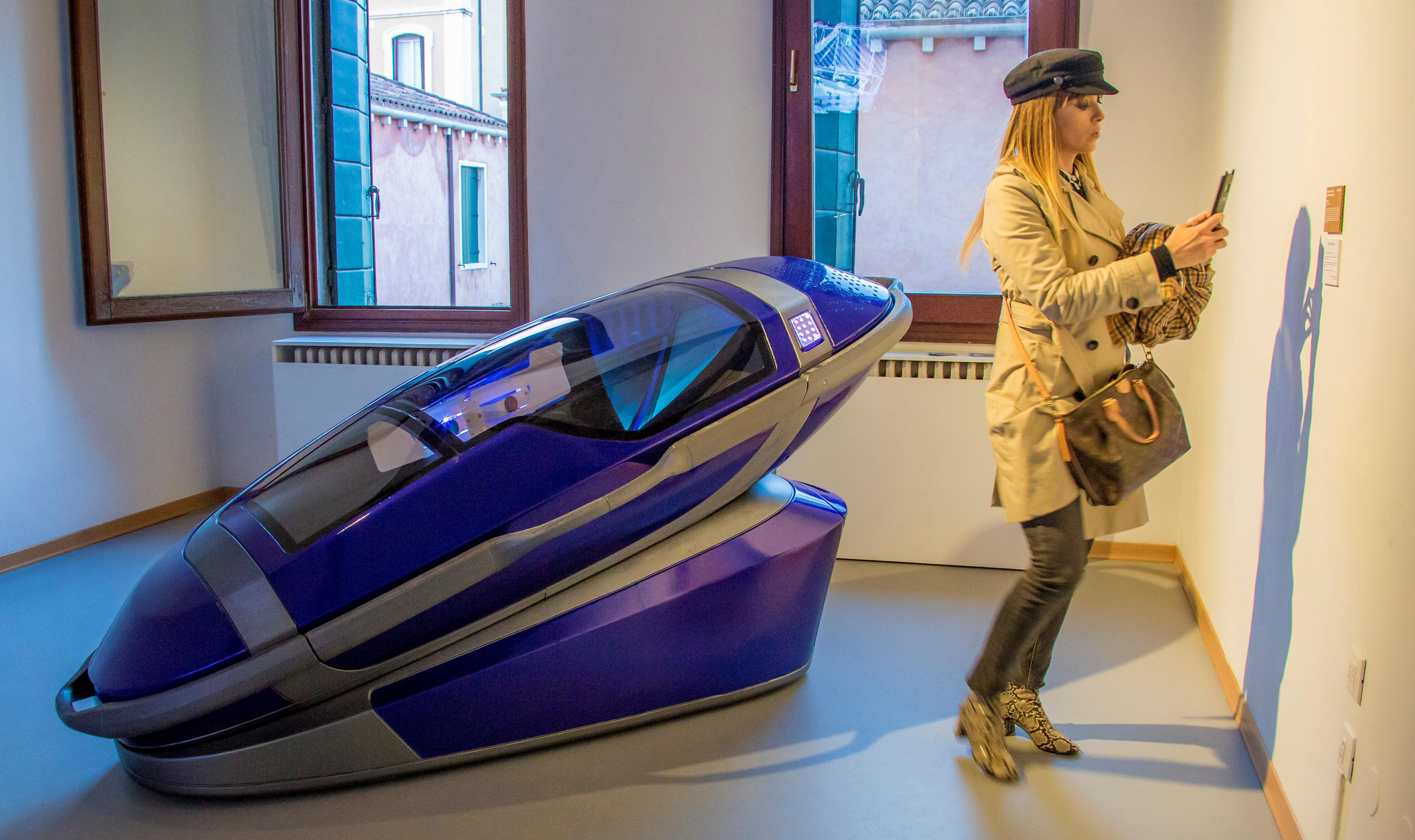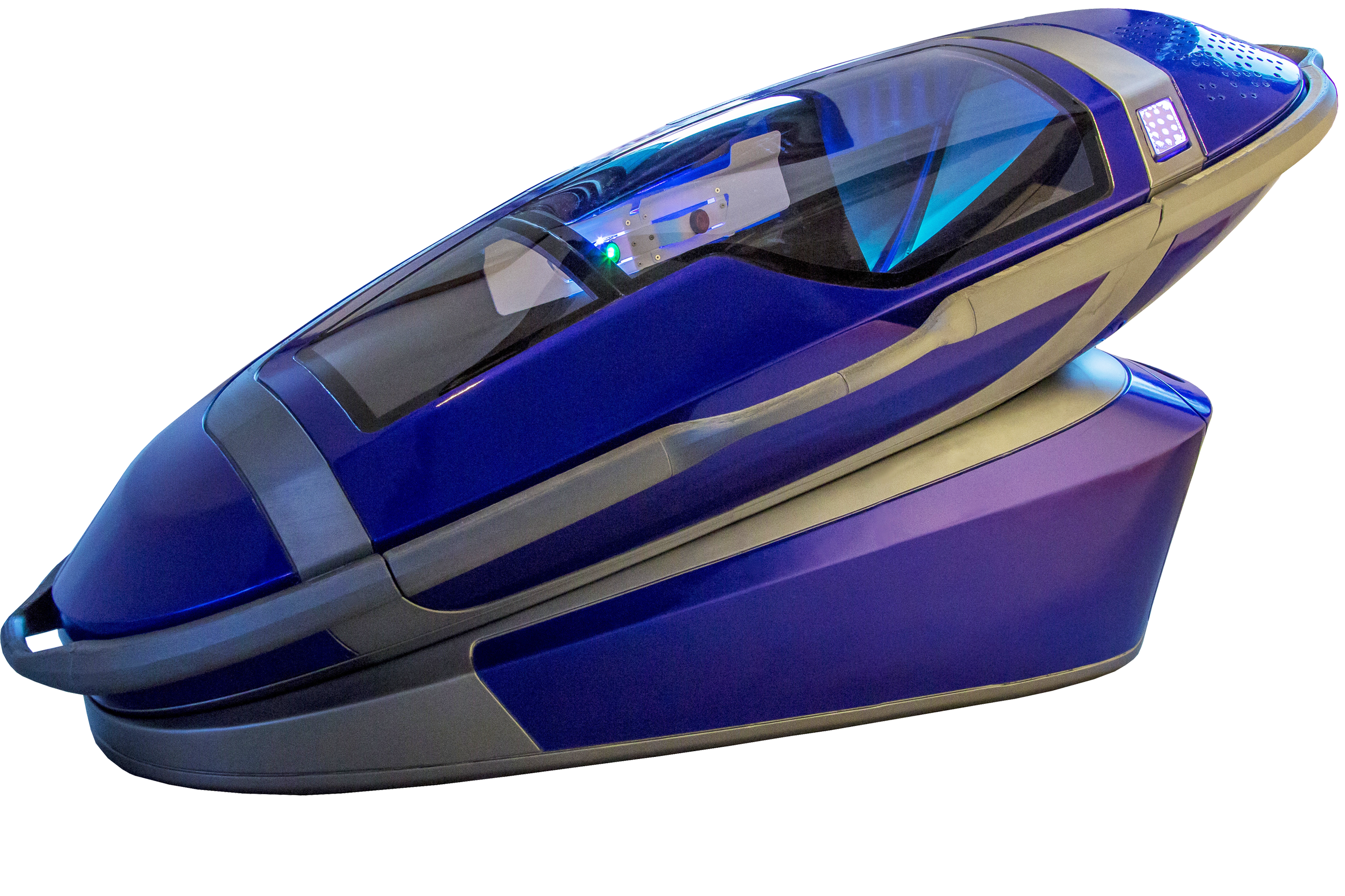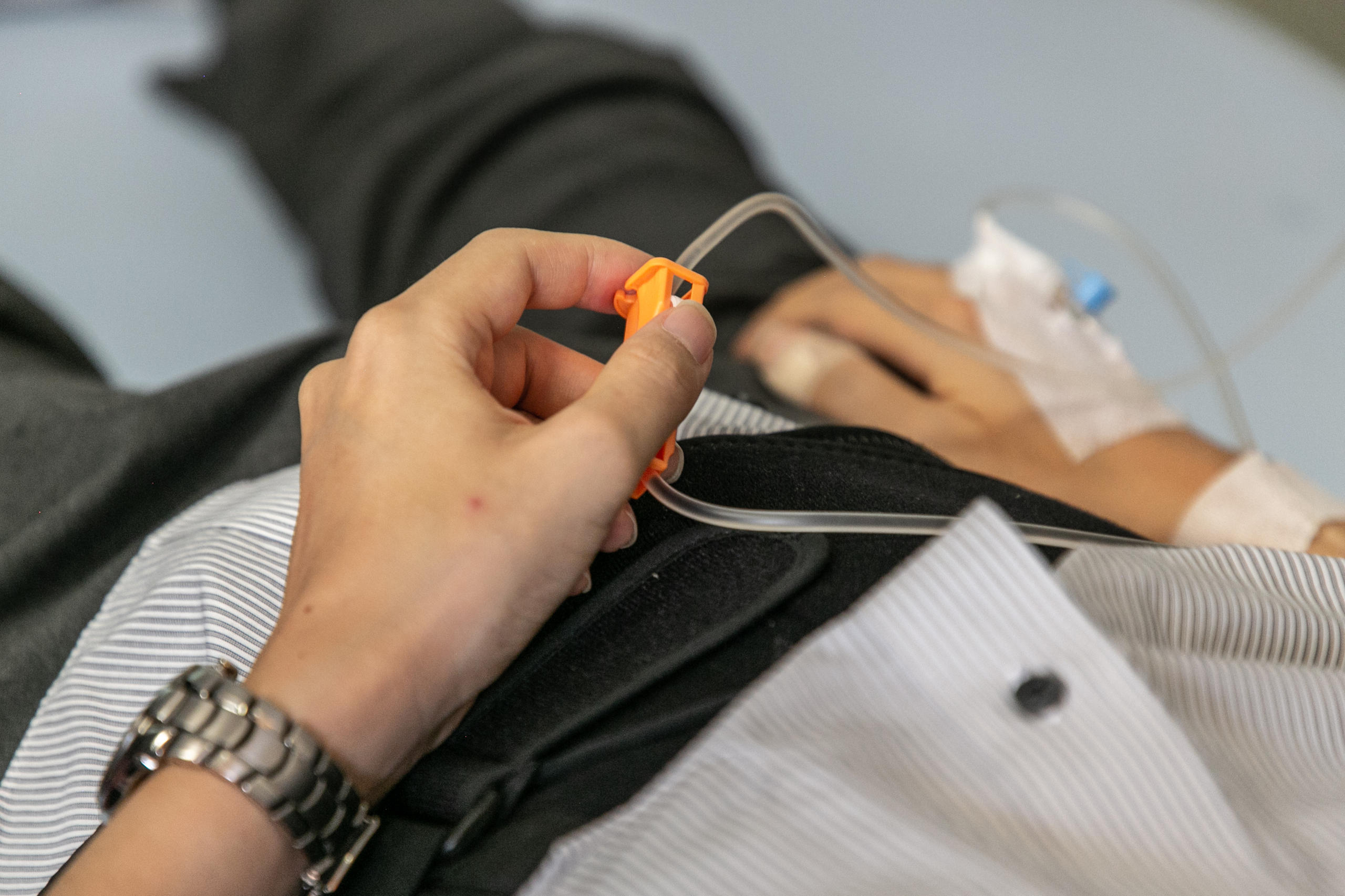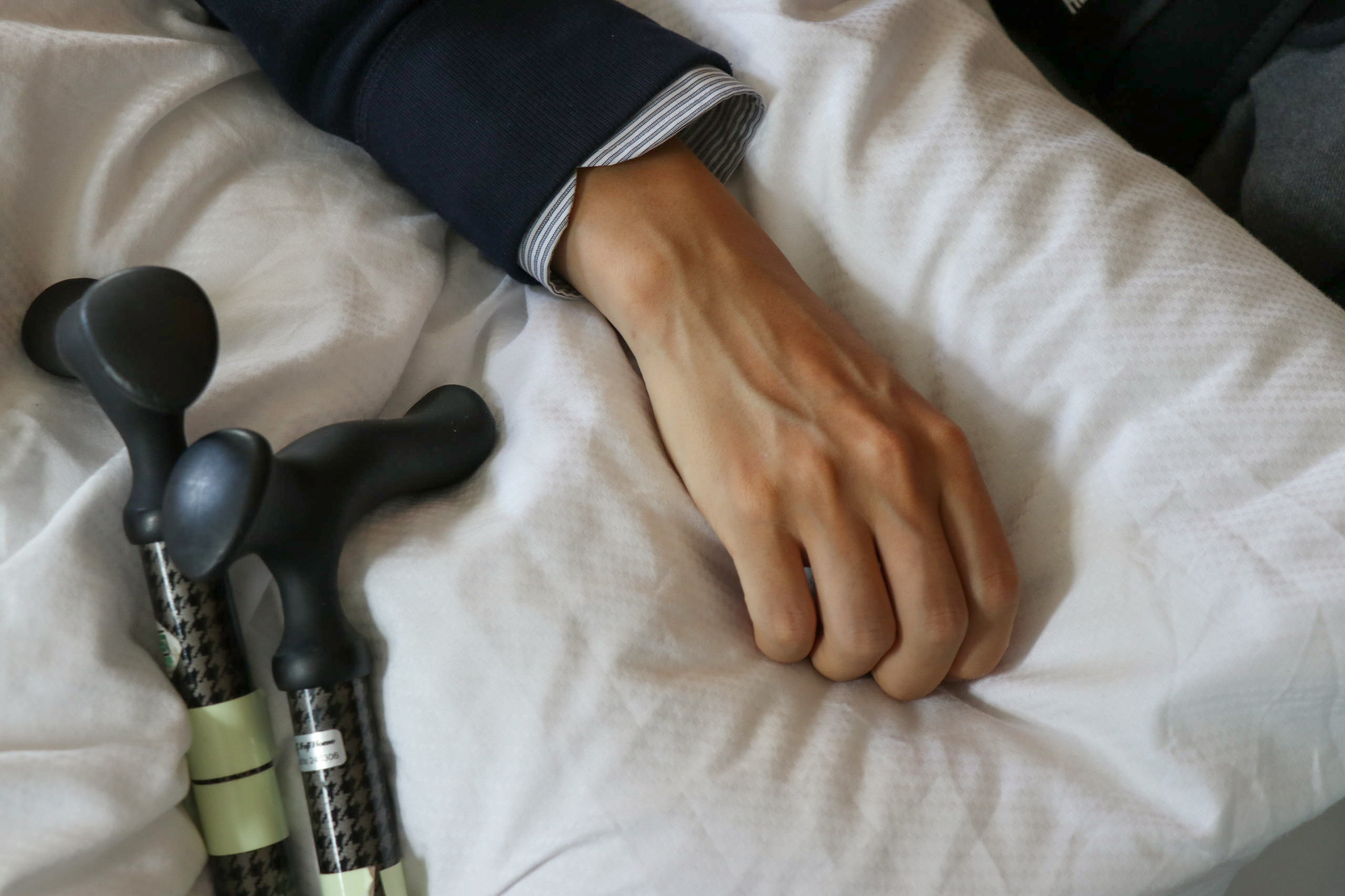
Sarco suicide capsule hopes to enter Switzerland

A 3D-printed capsule destined for use in assisted suicide hopes to operate in Switzerland, according to Exit International, the organisation that developed the ‘Sarco’ machine.
Due to our mistaken choice of headline, the original version of this article was widely misinterpretedExternal link to mean that the Sarco capsule had received official legal approval for use in Switzerland. This is not the case. The promoters of the machine merely received privately-commissioned legal advice which concluded that there was no legal obstacle to its potential use in Switzerland. We regret that our original choice of headline misled readers and caused confusion: “Suicide capsule ‘passes legal review’ in Switzerland”.
Some 1,300 people died by assisted suicide in Switzerland in 2020 using the services of the country’s two largest assisted suicide organisations, Exit (no connection to Exit International) and Dignitas. The method currently in use is ingestion of liquid sodium pentobarbital.
After taking the drug, the person will fall asleep within two to five minutes before slipping into a deep coma, followed soon afterwards by death. Sarco offers a different approach for a peaceful death, without the need for controlled substances.
SWI swissinfo.ch spoke to Philip Nitschke, founder of Australia-registered Exit International, about his innovation, the coffin-like Sarco capsule, and what place he expects it will have in the Swiss assisted dying sector.

SWI swissinfo.ch: What is Sarco and how does it work?
Philip Nitschke: It’s a 3-D printed capsule, activated from the inside by the person intending to die. The machine can be towed anywhere for the death. It can be in an idyllic outdoor setting or in the premises of an assisted suicide organisation, for example.
The person will get into the capsule and lie down. It’s very comfortable. They will be asked a number of questions and when they have answered, they may press the button inside the capsule activating the mechanism in their own time.
The capsule is sitting on a piece of equipment that will flood the interior with nitrogen, rapidly reducing the oxygen level to 1 per cent from 21 per cent in about 30 seconds. The person will feel a little disoriented and may feel slightly euphoric before they lose consciousness. Death takes place through hypoxia and hypocapnia, oxygen and carbon dioxide deprivation, respectively. There is no panic, no choking feeling. [In an environment where the oxygen is less than 1 per cent, after losing consciousness death would occur after approximately 5-10 minutes, according to Philip Nitschke.]
Assisted suicide is allowed in Switzerland under certain conditions.External link
SwissMedic, the government agency in charge of regulating medical products, confirmed to the AP that it had not approved the Sarco capsule.
Nitschke told the AP that his nonprofit, Exit InternationalExternal link, never pursued approval because it obtained outside legal opinion from a consultant — a former chair of Infrastructure Law and New Technologies at Germany’s Freiberg University of Mining and Technology — who determined it did not need formal authorisation or licensing to use the device.
EXITExternal link, an established organisation currently offering assisted dying services in Switzerland, says it has questions about Sarco and the legal opinion obtained by Exit International, which is unaffiliated with their group.
“It is unclear what the exact content of the legal opinion for legalisation is,” EXIT Vice President Jürg Wiler wrote in an email, adding: “And how about testing the capsule? EXIT does not see ‘Sarco’ as an alternative to the physician-assisted suicides that EXIT carries out in Switzerland.”
Source: AP
SWI swissinfo.ch: What stage are you at in developing the machine and making it available for use?
P.N.: Last year, we sought senior advice on the legality of using Sarco in Switzerland for assisted dying. This review has been completed and we’re very pleased with the result which found that we hadn’t overlooked anything. There are no legal issues at all.
There are two Sarco prototypes in existence so far, and the third Sarco is now being printed in the Netherlands. If all goes well, the third machine should be ready for operation in Switzerland in 2022.

More
Why these Japanese patients wanted to die in Switzerland
The first Sarco is being displayed at the Museum for Sepulchral Culture in Kassel, Germany from September 2021 to August 2022. The second turned out not to be aesthetically pleasing. For that and various other reasons it’s not the best one to use.
Several of Sarco’s supplementary projects have been delayed due to the [Covid-19] pandemic. For instance, the development of a camera that allows the person to communicate with the people outside. There needs to be a recording of the person’s informed consent. This has been commissioned and the next step is to get it manufactured.
SWI swissinfo.ch: Your stated goal is to de-medicalise the dying process. What does that entail?
P.N.: Currently a doctor or doctors need to be involved to prescribe the sodium pentobarbital and to confirm the person’s mental capacity. We want to remove any kind of psychiatric review from the process and allow the individual to control the method themselves.

More
Yoshi travels from Japan to Switzerland to die
Our aim is to develop an artificial intelligence screening system to establish the person’s mental capacity. Naturally there is a lot of scepticism, especially on the part of psychiatrists. But our original conceptual idea is that the person would do an online test and receive a code to access the Sarco.

More
Why assisted suicide is ‘normal’ in Switzerland
This text was updated with the following information on December 6: [In an environment where the oxygen is less than 1%, after losing consciousness death would occur after approximately 5-10 minutes, according to Philip Nitschke.]
More

In compliance with the JTI standards
More: SWI swissinfo.ch certified by the Journalism Trust Initiative
































You can find an overview of ongoing debates with our journalists here . Please join us!
If you want to start a conversation about a topic raised in this article or want to report factual errors, email us at english@swissinfo.ch.